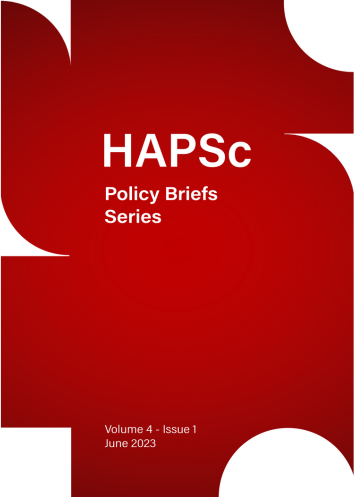Brain Drain, A Modern Issue for the EU

Abstract
The brain-drain phenomenon refers to the global moving of skilled alumni in order to ensure better work opportunities and higher salaries (Oxford Learner's Dictionaries, 2023). Its main effect is the loss of human capital in the mother countries, in which gaps in the workforce are being created, leaving the spots for people with lower qualifications. The lost income will cause a tax increase leading to the payment inability and to an overall worsening of the economy. The last result is what makes the phenomenon so important. The economy and the education are the foundations of a country and with the worsening of the first in the fields of home industries, the public services are facing a failure, the state providing less to its people (Young, 2021).
Article Details
- How to Cite
-
Theocharidou, A. A. (2023). Brain Drain, A Modern Issue for the EU. HAPSc Policy Briefs Series, 4(1), 142–148. https://doi.org/10.12681/hapscpbs.35193
- Section
- Articles

This work is licensed under a Creative Commons Attribution 4.0 International License.
Authors retain copyright and grant the journal right of first publication with the work simultaneously licensed under a Creative Commons Attribution License that allows others to share the work with an acknowledgement of the work's authorship and initial publication in this journal.

